When importing goods from China to Argentina, it is important to understand the various modes of transportation to ensure efficient and cost-effective logistics. To do this, you need to find a reliable and cheap freight forwarding company. This comprehensive overview will guide you on how to choose a good and cost-effective Shipping Company from China to Argentina
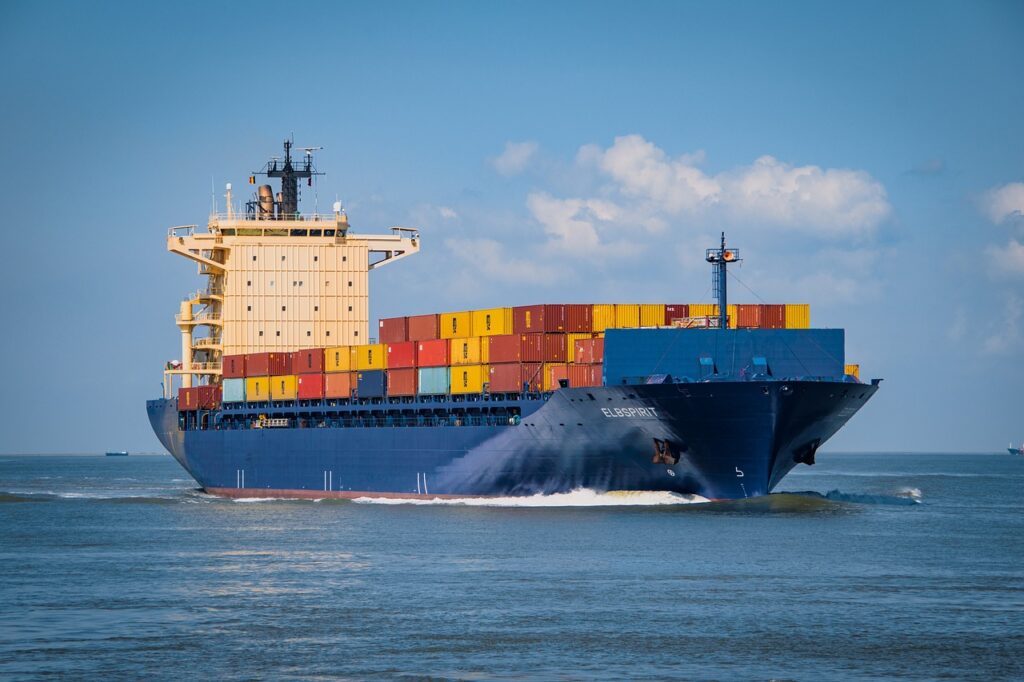
Overview of Shipping Options from China to Argentina
When importing goods from China to Argentina, understanding the shipping options available is essential for ensuring timely and cost-effective delivery. Various methods cater to different needs in terms of speed, budget, and the nature of the goods being shipped. This section will delve into the primary shipping methods, namely air freight, sea freight, and express delivery services, including the convenience of door-to-door shipping solutions.

Air Freight vs Sea Freight
Air Freight
Air freight involves transporting goods via aircraft and is primarily used for urgent shipments. This method is recommended for high-value items or time-sensitive products. Here are some key points to consider:
- Speed: Air freight is significantly faster than sea freight, with transit times typically ranging from 3 to 7 days.
- Cost: It is generally more expensive due to the high operational costs of airlines.
- Weight and Volume Limitations: Airlines impose strict weight limits, which may affect bulk shipments.
Sea Freight
Conversely, sea freight is a more economical option for larger shipments. It involves shipping goods via cargo vessels and is suitable for non-urgent deliveries. Key features include:
- Cost-Effectiveness: Sea freight offers lower rates for bulk shipping, making it ideal for large quantities.
- Longer Transit Times: The usual transit time from China to Argentina is between 30 to 45 days, depending on the shipping route and port congestion.
- Capacity: Sea freight can handle large shipments, including containers and oversized cargo.
| Shipping Method | Speed | Cost | Weight Limitations |
|---|---|---|---|
| Air Freight | 3-7 days | High | Strict (limited) |
| Sea Freight | 30-45 days | Low | No strict limit |
Express Delivery Services
For businesses requiring rapid delivery of smaller packages, express delivery services offer a convenient solution. These services combine the benefits of air freight with the added speed of courier services. Notable carriers include DHL, FedEx, and UPS. Advantages of express delivery include:
- Speed: Deliveries can often be made within 1 to 5 business days.
- Tracking: Real-time tracking is usually available, providing transparency throughout the shipping process.
- Convenience: Door-to-door delivery makes it easy for importers, allowing goods to be sent directly to their specified locations.
Door-to-Door Shipping
Door-to-door shipping refers to a logistics service where the provider manages the entire shipping process from the origin in China to the final destination in Argentina. This comprehensive solution includes:
- Customs Clearance: Expert handling of customs paperwork ensures compliance with local regulations, minimizing delays.
- End-to-End Tracking: Customers can monitor their shipments at every stage.
- Stress Reduction: Importers save time and effort by outsourcing logistics to specialists like Dantful International Logistics, which offers a highly professional, cost-effective, and high-quality one-stop service for global traders.
Dantful International Logistics Services:
- Dantful Ocean Freight Services
- Air Freight From China
- Amazon FBA Freight Forwarding
- WAREHOUSE Services
- One-Stop Customs Clearance Solution
- Cargo Insurance Services in China
- DDP Shipping Services By Dantful Logistics
- Out of Gauge Cargo Transportation Shipping Services
Factors to Consider When Choosing a Shipping Company
Selecting the right shipping company is crucial for successful import operations. Various factors can significantly impact the efficiency of your logistics process. Below are some critical considerations.
Shipping Costs and Rates
Shipping costs vary significantly across providers and shipping methods. It is essential to obtain detailed quotes that include all potential fees, such as fuel surcharges, customs duties, and handling charges. Comparing multiple quotes helps identify the most economical option without compromising service quality.
Transit Times
Different shipping methods come with varying transit times. Urgency should dictate your choice; if time is of the essence, air freight or express services may be preferable, while sea freight is suitable for less time-sensitive shipments. Understanding the shipping timelines will help in planning inventory and ensuring timely market delivery.
Reliability and On-Time Delivery
Assess the reliability of potential shipping partners by reviewing their performance history. Look for customer reviews and ratings to gauge satisfaction levels with on-time deliveries. A dependable courier enhances business reputation and customer trust.
Insurance and Damage Protection
Shipping involves inherent risks, such as loss or damage to goods. It’s wise to consider insurance services that provide coverage during transit. Evaluate the policies offered by potential shipping partners to ensure adequate protection for your shipments.
Customer Service and Support
Effective communication with your shipping company is vital. Choose a provider that offers robust customer service, including assistance with customs clearance and support in case of delays or issues. A responsive customer service team can make a significant difference in managing unexpected challenges during the shipping process.
In summary, when importing goods from China to Argentina, evaluating your shipping options and the factors that influence your choice of shipping company is critical. Dantful International Logistics stands ready to assist with a wide range of shipping solutions tailored to meet your specific needs, ensuring a seamless and reliable logistics experience. For more information about our services, consider Dantful Logistics.
Top International Freight Forwarders for China to Argentina Shipping
When shipping goods from China to Argentina, partnering with a reputable international freight forwarder can streamline the logistics process and enhance the quality of service. Below are some of the top freight forwarders known for their extensive experience and reliability in managing shipping operations between these two countries.
DHL
DHL is a global leader in the logistics industry, providing a comprehensive range of shipping solutions. With a strong presence in both China and Argentina, DHL ensures efficient air and sea freight services tailored to meet customers’ needs. Key advantages include:
- Extensive Network: DHL operates in over 220 countries, facilitating global shipping.
- Express Services: Options for fast delivery, ideal for urgent shipments.
- Advanced Technology: Real-time tracking systems provide customers with visibility throughout the shipping process.
FedEx
FedEx is renowned for its express delivery services, making it a popular choice for businesses requiring swift shipping from China to Argentina. The company’s strengths include:
- Reliable Transit Times: FedEx offers various services with guaranteed delivery timelines.
- Custom Solutions: Tailored shipping plans to accommodate different business needs.
- Strong Tracking Capabilities: Customers can track their packages at every stage.
UPS
UPS is another major player in international logistics, known for its reliable service and extensive infrastructure. Some noteworthy features of UPS include:
- Diverse Shipping Options: From air freight to ground services, UPS offers flexible solutions.
- Customs Brokerage: UPS provides expertise in navigating complex customs regulations, ensuring smooth clearance.
- Sustainability Initiatives: Commitment to reducing carbon footprints through eco-friendly practices in logistics.
Aramex
Aramex is a prominent logistics provider with a focus on the Middle East, but its services extend to Asia and Latin America, including Argentina. Key highlights of their offerings include:
- Global Reach: Extensive network that covers emerging markets effectively.
- Cost-effective Solutions: Competitive pricing, especially for small to medium-sized shipments.
- Dedicated Support: Focus on customer service and tailored solutions for varying business needs.
DB Schenker
DB Schenker is a leading global logistics provider known for its comprehensive supply chain solutions. Their strengths encompass:
- Integrated Services: Seamless coordination between air, land, and sea freight services.
- Industry Expertise: Specialized services for various sectors, including automotive, consumer goods, and technology.
- Innovative Solutions: Focus on digital transformation to enhance shipping efficiency and visibility.
READ MORE:
- Shipping From China to the United States
- Shipping From China TO Canada
- Shipping From China TO Mexico
- Shipping From China to Panama
- Shipping From China to Costa Rica
- Shipping From China to Brazil
- Shipping From China TO Colombia
- Shipping From China to Jamaica
- Shipping From China to Venezuela
Advantages of Using an International Freight Forwarder

Engaging an international freight forwarder offers numerous benefits that can significantly simplify the shipping process from China to Argentina. Below are some advantages that underscore the value of utilizing these logistics experts.
Expertise in International Shipping Regulations
International freight forwarders possess in-depth knowledge of shipping regulations and compliance requirements across different countries. Their expertise helps ensure that shipments adhere to local laws, reducing the risk of fines, delays, or confiscation of goods. By navigating the complex legal landscape on behalf of importers, freight forwarders provide peace of mind and a smoother shipping experience.
Customs Clearance Assistance
Customs clearance is a critical component of international shipping, often posing challenges for businesses unfamiliar with the process. Freight forwarders assist with:
- Preparing necessary documentation, including invoices and packing lists.
- Understanding tariffs, duties, and taxes applicable to specific shipments.
- Ensuring compliance with local customs regulations, which minimizes the likelihood of delays at ports.
Tracking and Status Updates
Real-time tracking and status updates are integral to modern logistics. Freight forwarders offer advanced tracking systems that allow customers to monitor their shipments throughout the shipping journey. This transparency helps businesses plan their operations effectively and enhances customer satisfaction by providing accurate delivery expectations.
Single Point of Contact
A single point of contact simplifies communication and coordination throughout the shipping process. Freight forwarders manage all aspects of logistics, from origin to destination. This centralized approach eliminates confusion and ensures that all parties involved have access to the same information, thereby improving response times to any issues that may arise.
By choosing a reliable freight forwarder such as Dantful International Logistics, importers can leverage these advantages to optimize their shipping operations from China to Argentina. Dantful stands out as a highly professional, cost-effective, and high-quality one-stop international logistics service provider for global traders. For further information about their offerings, consider exploring Dantful Logistics.
Local Chinese Shipping Companies for Argentina
When considering shipping options from China to Argentina, local Chinese shipping companies can provide significant advantages. These companies often specialize in the nuances of international trade, particularly within the context of shipping to Latin America. Below are key reasons why partnering with local providers can be beneficial.
Lower Costs than International Providers
Local Chinese shipping companies frequently offer competitive pricing compared to larger international freight forwarders. Their cost-effectiveness is primarily due to:
- Reduced Operational Costs: Local firms typically have lower overhead expenses, allowing them to pass on savings to customers.
- Tailored Services: Many local companies focus on specific trade routes and client needs, optimizing logistics processes to minimize costs.
- Established Relationships: Local shippers often have strong relationships with domestic carriers and freight facilities, enabling better negotiation of rates and services.
The ability to secure more favorable pricing without sacrificing service quality makes local shipping companies an attractive option for businesses looking to reduce their supply chain expenditures.
Chinese Language Support
Language barriers can complicate communication and logistics coordination. Local shipping companies offer distinct advantages in this area:
- Bilingual Staff: Many local providers employ staff fluent in both Chinese and Spanish, facilitating effective communication between parties.
- Culturally Aligned Communication: Understanding cultural nuances can improve negotiation outcomes and enhance business relationships.
- Documentation Assistance: These companies can help prepare shipping documents in both languages, ensuring compliance with both Chinese and Argentine regulations.
The provision of language support enhances operational efficiency, reduces misunderstandings, and fosters smoother transactions throughout the shipping process.
Knowledge of Local Shipping Conditions
Local Chinese shipping companies possess a deep understanding of the logistics landscape, including:
- Regional Regulations: Awareness of local customs regulations, tariffs, and import restrictions that may apply to shipments to Argentina.
- Route Optimization: Insights into the best shipping routes, taking into account current conditions and potential delays due to weather or port congestion.
- Local Infrastructure: Familiarity with domestic transport options and local carriers, which can streamline distribution once goods arrive in Argentina.
This localized knowledge enables shipping companies to provide tailored solutions that account for specific logistical challenges, resulting in a more efficient shipping experience.
Dantful International Logistics Services:
- Dantful Ocean Freight Services
- Air Freight From China
- Amazon FBA Freight Forwarding
- WAREHOUSE Services
- One-Stop Customs Clearance Solution
- Cargo Insurance Services in China
- DDP Shipping Services By Dantful Logistics
- Out of Gauge Cargo Transportation Shipping Services
Incoterms for China to Argentina Shipping
Understanding Incoterms is crucial for anyone involved in international shipping. These standardized trade terms clarify the responsibilities of buyers and sellers in transactions, especially regarding shipping costs, risk management, and insurance coverage. Below are key Incoterms commonly used in shipping from China to Argentina.
EXW (Ex Works)
Under the Ex Works (EXW) term, the seller makes the goods available at their premises or another named place. The buyer assumes all responsibilities, including:
- Transportation Costs: The buyer covers all costs associated with transporting the goods from the seller’s location to the final destination.
- Customs Clearance: The buyer is responsible for all customs duties and compliance requirements in both China and Argentina.
- Risk Management: Risk transfers from the seller to the buyer as soon as the goods are made available.
This term is beneficial for buyers who prefer to control the entire shipping process but is less favorable for those who may lack experience in international logistics.
FCA (Free Carrier)
Free Carrier (FCA) indicates that the seller delivers the goods, cleared for export, to a carrier selected by the buyer at a named location. Key aspects include:
- Flexibility: The buyer can choose the carrier and method of transport, providing more control over logistics.
- Cost Allocation: The seller is responsible for costs up to the point of delivery to the carrier.
- Risk Transfer: The risk transfers to the buyer once the goods are handed over to the carrier.
FCA is advantageous for buyers looking for flexibility in their shipping arrangements while still requiring seller support for export clearance.
CPT (Carriage Paid To)
Carriage Paid To (CPT) indicates that the seller pays for transport to a specified destination. Important points include:
- Seller Responsibilities: The seller is responsible for transportation costs up to the agreed destination.
- Risk Transfer: Risk transfers to the buyer as soon as the goods are handed over to the carrier, even though the seller pays for transportation.
- No Insurance Coverage: The seller is not required to insure the goods during transit, although they may choose to do so.
CPT is beneficial when buyers want to ensure that transportation is managed for them while accepting the risk as soon as the goods are with the carrier.
CIP (Carriage and Insurance Paid To)
Carriage and Insurance Paid To (CIP) is similar to CPT, with the key difference that the seller is responsible for insurance coverage during transportation. Key features include:
- Seller Responsibilities: The seller pays for transport and insurance to the specified destination.
- Risk Transfer: The risk transfers to the buyer once the goods are handed over to the carrier, but the seller is obligated to provide insurance.
- Protection for Buyers: This term provides additional security for buyers, ensuring that goods are insured during transit.
CIP is often favored by buyers looking for peace of mind knowing that their shipments are insured throughout the shipping process.
Utilizing local Chinese shipping companies in conjunction with a clear understanding of Incoterms can significantly enhance the shipping experience from China to Argentina. By engaging with experts who understand both the local and international landscapes, businesses can navigate the complexities of global trade more effectively. For assistance with your shipping needs, consider leveraging the services provided by Dantful International Logistics, known for their comprehensive support and expertise. For more information on their offerings, visit Dantful Logistics.
Tips for Negotiating the Best Shipping Rates
Successful negotiation of shipping rates can significantly impact your overall logistics costs when importing goods from China to Argentina. Here are some essential tips to help you secure the best possible rates from freight forwarders and shipping companies.
Get Quotes from Multiple Providers
One of the most effective ways to ensure competitive pricing is to obtain quotes from various shipping providers. This strategy allows you to:
- Compare Costs: Different providers may offer varying rates for similar services. Gathering multiple quotes provides a clear picture of the market.
- Evaluate Services Offered: In addition to pricing, assess the services included in the quotes, such as customs clearance assistance, delivery speed, and tracking capabilities.
- Leverage Competition: Using quotes from other providers as leverage in negotiations can lead to better rates and terms from your preferred shipping company.
This approach fosters transparency and encourages all parties to provide their most competitive offers.
Provide Accurate Dimensions and Weights
Ensuring that the shipping company receives accurate dimensions and weights for your cargo is crucial. This practice helps in:
- Avoiding Surprises: Misreported dimensions can lead to unexpected charges, particularly if the actual weight exceeds the estimated weight.
- Optimizing Shipping Costs: Accurate measurements allow the shipping company to determine the most cost-effective shipping method and method of transport, potentially lowering your overall costs.
- Streamlining the Quoting Process: Providing precise information results in more reliable quotes that reflect the true nature of the shipment, which can expedite the negotiation process.
This transparency builds trust with your shipping partner and can lead to improved service and rates.
Consider Shipping in Off-Peak Seasons
Shipping costs can fluctuate based on demand and seasonality. By planning shipments during off-peak periods, you can leverage lower rates. Consider these factors:
- Reduced Demand: Shipping costs often decrease when demand is low, such as after major holidays or during specific months when fewer shipments are made.
- Better Availability: Off-peak seasons may allow for more flexible scheduling, enabling you to secure better rates and preferred shipping methods.
- Promotional Rates: Some carriers may offer special discounts or promotions during slower periods, creating opportunities for significant savings.
By strategically timing your shipments, you can optimize costs without compromising service quality.
Consolidate Shipments When Possible
Shipping multiple smaller shipments as a single consolidated shipment can lead to substantial savings. This strategy includes:
- Reduced Per-Unit Costs: Combining shipments often results in lower overall shipping fees compared to sending several smaller shipments individually.
- Streamlined Logistics: Fewer shipments can simplify the logistics chain, reducing the need for multiple customs clearances and handling charges.
- Better Negotiating Power: Larger shipments may provide leverage to negotiate more favorable terms and rates with your shipping provider.
Consolidation not only saves money but can also enhance efficiency in the shipping process.
Importance of Tracking and Insurance
In international shipping, particularly when transporting goods from China to Argentina, the significance of tracking and insurance cannot be overstated. They play vital roles in ensuring the security and reliability of shipments.
Real-Time Shipment Tracking
Real-time shipment tracking technology allows businesses to monitor their goods throughout the shipping journey. This capability offers several benefits:
- Enhanced Visibility: Trackers provide updates on the status and location of shipments, allowing for proactive management and planning.
- Improved Customer Communication: Customers appreciate receiving timely updates about their orders, enhancing their overall experience and satisfaction.
- Issue Resolution: Immediate notification of delays or issues enables businesses to respond swiftly and mitigate potential disruptions.
Investing in a shipping partner that offers advanced tracking solutions enhances operational control and customer relationship management.
Cargo Insurance Options
Cargo insurance is critical in protecting shipments during transit. It provides coverage against loss, theft, or damage that can occur during the shipping process. Consider these aspects:
- Types of Coverage: Understand the various insurance options available, including all-risk policies and named-peril policies, to choose the one that best suits your needs.
- Cost vs. Risk Assessment: Evaluate the value of the goods being shipped and the potential risks involved. Adequate insurance can provide peace of mind, especially for high-value or fragile items.
- Customizable Policies: Many providers offer tailored insurance solutions that cater to specific shipping needs and budgets.
Securing appropriate cargo insurance is a prudent measure to safeguard investments against unforeseen events.
Damage Claims Process
In the event of loss or damage during shipping, having a clear understanding of the damage claims process is essential:
- Documentation: Maintain thorough records of the shipment, including photographs, packing lists, and bills of lading, to support any claims.
- Claim Procedures: Familiarize yourself with the claims process outlined by the shipping provider, including timelines and required documentation.
- Follow-Up: Actively follow up on claims to ensure prompt resolution and compensation. Being proactive can expedite the claims process.
A well-understood claims process helps minimize financial losses and ensures accountability from the shipping provider.
By implementing effective negotiation strategies and understanding the importance of tracking and insurance, businesses can enhance their shipping experience and reduce costs when importing goods from China to Argentina. For professional support and tailored solutions, consider partnering with Dantful International Logistics, a provider known for its commitment to quality and customer satisfaction. For more information on their services, visit Dantful Logistics.
FAQs
1. What are the main shipping methods available for transporting goods from China to Argentina?
The primary shipping methods include air freight, which is faster but more expensive, and sea freight, which is more cost-effective for larger shipments. Express delivery services are also available for urgent and smaller packages, providing a convenient option with door-to-door delivery.
2. How long does it take to ship goods from China to Argentina?
- Air freight transit times typically range from 3 to 7 days.
- Sea freight usually takes between 30 to 45 days, depending on the shipping route and port congestion.
- Express delivery services can deliver goods within 1 to 5 business days.
3. What are the factors to consider when choosing a shipping company?
Key factors include:
- Shipping costs and rates
- Transit times
- Reliability and on-time delivery
- Insurance and damage protection
- Customer service and support
4. What is door-to-door shipping?
Door-to-door shipping refers to a logistics service where the provider manages the entire shipping process, from the origin in China to the final destination in Argentina. This service often includes customs clearance and end-to-end tracking, making it convenient for importers.
5. How can I negotiate better shipping rates?
Some tips for negotiating shipping rates include:
- Obtaining quotes from multiple providers for comparison.
- Providing accurate dimensions and weights for your cargo.
- Considering shipping during off-peak seasons to take advantage of lower rates.
- Consolidating shipments to reduce per-unit costs.
6. Is cargo insurance necessary when shipping goods internationally?
Yes, cargo insurance is essential as it provides coverage against loss, theft, or damage that can occur during transit. Understanding the types of coverage available and evaluating the associated risks can help businesses safeguard their investments.
7. What are Incoterms, and why are they important?
Incoterms are standardized trade terms that clarify the responsibilities of buyers and sellers in international transactions concerning shipping costs, risks, and insurance. Understanding these terms helps parties navigate logistics effectively and avoid disputes.
8. Why should I consider using an international freight forwarder?
International freight forwarders offer numerous benefits, including expertise in shipping regulations, customs clearance assistance, tracking and status updates, and a single point of contact for all logistics needs. They simplify the shipping process and enhance operational efficiency.
For professional support and tailored logistics solutions, consider partnering with Dantful International Logistics, known for their commitment to quality and customer satisfaction. For more information about their services, visit Dantful Logistics.

Young Chiu is a seasoned logistics expert with over 15 years of experience in international freight forwarding and supply chain management. As CEO of Dantful International Logistics, Young is dedicated to providing valuable insights and practical advice to businesses navigating the complexities of global shipping.
The other language versions of this article
- الدليل النهائي للعثور على أرخص شركات الشحن من الصين إلى الأرجنتين
- Ultieme gids om de goedkoopste rederijen van China naar Argentinië te vinden
- Guide ultime pour trouver les compagnies de transport les moins chères de la Chine vers l’Argentine
- Ultimativer Leitfaden zum Finden der günstigsten Versandunternehmen von China nach Argentinien
- Guida definitiva per trovare le compagnie di spedizione più economiche dalla Cina all’Argentina
- Guía definitiva para encontrar las empresas de envío más baratas desde China a Argentina
- Guia definitivo para encontrar as empresas de transporte mais baratas da China para a Argentina
- Полное руководство по поиску самых дешевых компаний по доставке из Китая в Аргентину
- Çin’den Arjantin’e En Ucuz Nakliye Şirketlerini Bulmak İçin Nihai Kılavuz









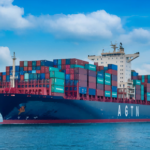

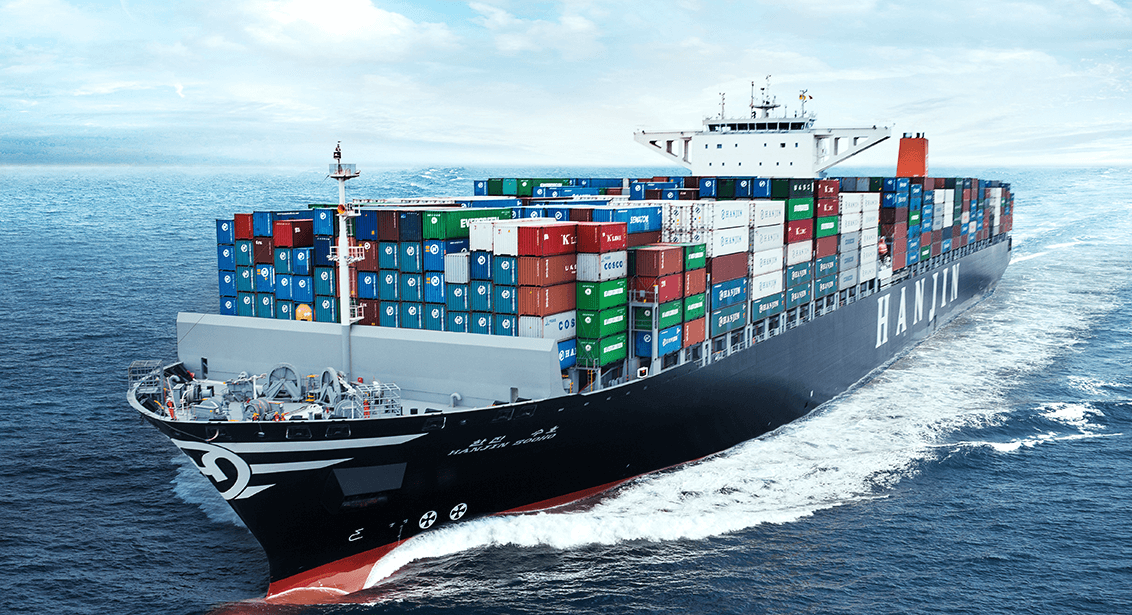
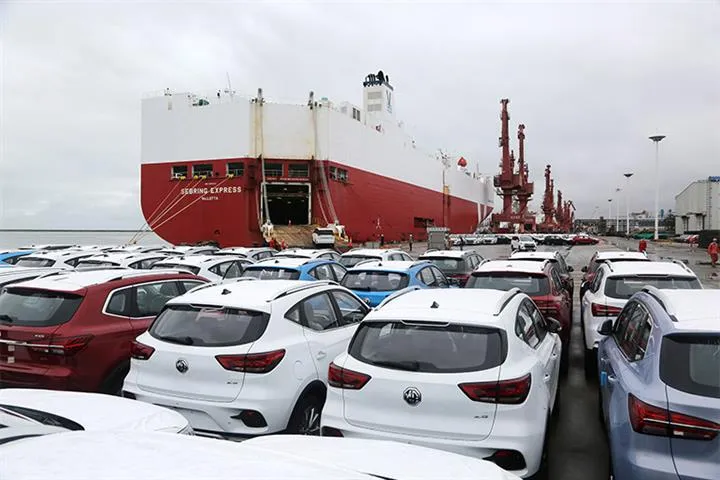


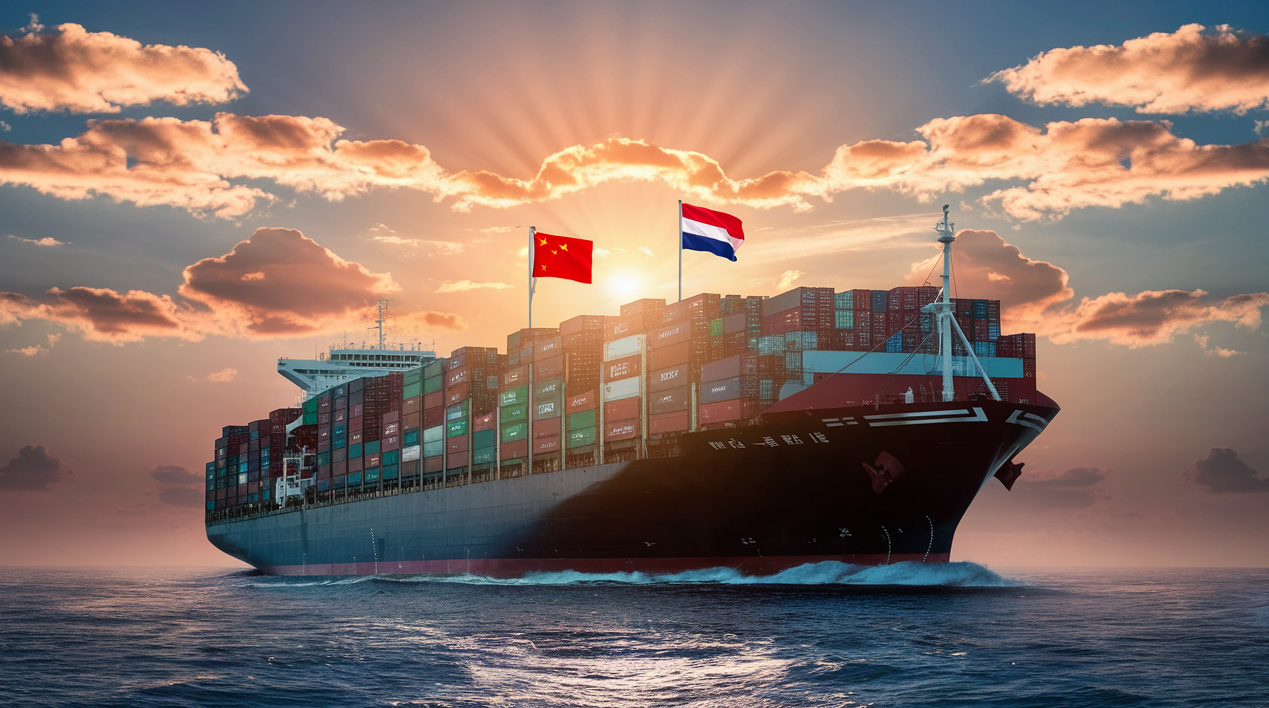





 Afrikaans
Afrikaans Shqip
Shqip አማርኛ
አማርኛ العربية
العربية Հայերեն
Հայերեն Azərbaycan dili
Azərbaycan dili Euskara
Euskara Беларуская мова
Беларуская мова বাংলা
বাংলা Bosanski
Bosanski Български
Български Català
Català Cebuano
Cebuano Chichewa
Chichewa 简体中文
简体中文 繁體中文
繁體中文 Corsu
Corsu Hrvatski
Hrvatski Čeština
Čeština Dansk
Dansk Nederlands
Nederlands English
English Esperanto
Esperanto Eesti
Eesti Filipino
Filipino Suomi
Suomi Français
Français Galego
Galego ქართული
ქართული Deutsch
Deutsch Ελληνικά
Ελληνικά Kreyol ayisyen
Kreyol ayisyen Harshen Hausa
Harshen Hausa Ōlelo Hawaiʻi
Ōlelo Hawaiʻi עִבְרִית
עִבְרִית हिन्दी
हिन्दी Hmong
Hmong Magyar
Magyar Íslenska
Íslenska Igbo
Igbo Bahasa Indonesia
Bahasa Indonesia Gaeilge
Gaeilge Italiano
Italiano 日本語
日本語 Basa Jawa
Basa Jawa ಕನ್ನಡ
ಕನ್ನಡ Қазақ тілі
Қазақ тілі ភាសាខ្មែរ
ភាសាខ្មែរ 한국어
한국어 كوردی
كوردی Кыргызча
Кыргызча ພາສາລາວ
ພາສາລາວ Latin
Latin Latviešu valoda
Latviešu valoda Lietuvių kalba
Lietuvių kalba Lëtzebuergesch
Lëtzebuergesch Македонски јазик
Македонски јазик Malagasy
Malagasy Bahasa Melayu
Bahasa Melayu മലയാളം
മലയാളം Maltese
Maltese Te Reo Māori
Te Reo Māori मराठी
मराठी Монгол
Монгол ဗမာစာ
ဗမာစာ नेपाली
नेपाली Norsk bokmål
Norsk bokmål پښتو
پښتو فارسی
فارسی Polski
Polski Português
Português ਪੰਜਾਬੀ
ਪੰਜਾਬੀ Română
Română Русский
Русский Samoan
Samoan Gàidhlig
Gàidhlig Српски језик
Српски језик Sesotho
Sesotho Shona
Shona سنڌي
سنڌي සිංහල
සිංහල Slovenčina
Slovenčina Slovenščina
Slovenščina Afsoomaali
Afsoomaali Español
Español Basa Sunda
Basa Sunda Kiswahili
Kiswahili Svenska
Svenska Тоҷикӣ
Тоҷикӣ தமிழ்
தமிழ் తెలుగు
తెలుగు ไทย
ไทย Türkçe
Türkçe Українська
Українська اردو
اردو O‘zbekcha
O‘zbekcha Tiếng Việt
Tiếng Việt Cymraeg
Cymraeg יידיש
יידיש Yorùbá
Yorùbá Zulu
Zulu